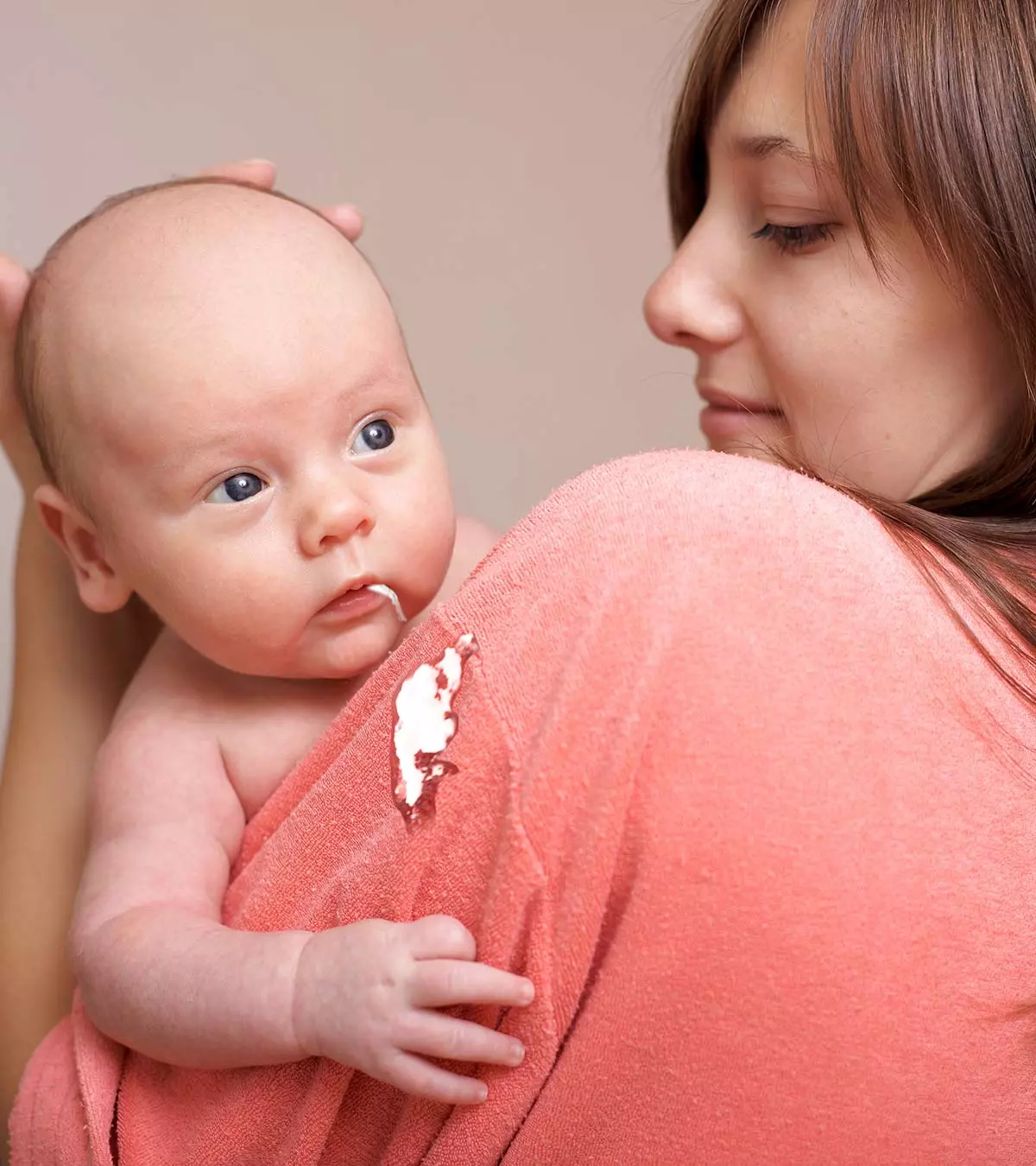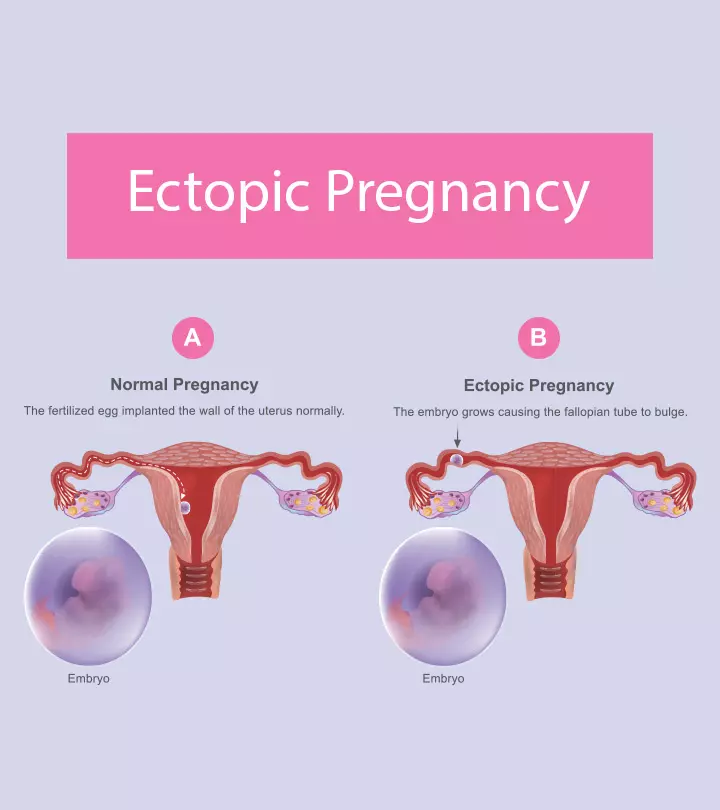
Image: ShutterStock

Just like in adults, yawning in babies is one of the signs of sleepiness and generally occurs just before the onset of sleep. Babies begin to yawn right from within the mother’s womb when they are young fetuses of 12-14 weeks gestational age (1). Yawning is defined as an involuntary wide opening of the mouth accompanied by a long and deep inhalation through the mouth and nose. It is followed by a slow exhalation and is associated with a feeling of relaxation and comfort.
If your baby seems to yawn excessively even after a good night’s sleep, you must inform your child’s pediatrician about it. The doctor may investigate it to rule out any other underlying conditions. Read on to know about the causes and management of excessive yawning in babies.
Key Pointers
- Lethargy, fatigue, or an underlying health issue may cause excessive yawning in babies.
- Make sure your baby gets adequate sleep and is exclusively breastfed till six months of age.
- Consult a pediatrician if your baby yawns a lot despite following a good bedtime routine.
Causes Of Excessive Yawning In Babies
Excessive yawning in babies can be due to any of the following reasons. However, it is best to look out for other signs, too, before determining the problem (2).
1. Lethargy
Excessive yawning can be a sign of drowsiness or lethargy in your baby.
Lethargy may be a sign of infection or other issues, such as low blood sugar (3). If they seem drowsy or lethargic even after having a good night’s sleep, it is best to consult your pediatrician.
2. Fatigue

Image: Shutterstock
Your baby might be yawning throughout the day due to tiredness and fatigue. The fatigue could be due to a lack of nutrients. Make sure your baby is well-fed and gets all the nutrients needed for their growth. Watch for signs of an overtired baby.
 Research finds
Research finds3. Underlying medical issues
In rare cases, yawning in babies could be a sign of an underlying medical condition, such as multiple sclerosis, epilepsy, migraine, stress, anxiety, or stroke.
This could increase the core body temperature, and yawning could be a mechanism to correct it.
Is Yawning Contagious In Babies?
You might have often noticed that we yawn involuntarily upon seeing someone yawn, but this may not be the case with babies. A study has found that contagious yawning can be induced in children after four to five years of age, and that babies below this age have immature neural mechanisms to understand the mental state of others and imitate yawning (2)
When Is Yawning Normal In Babies?
If your baby yawns once or twice per hour when they are sleepy, tired, or going through a growth spurt, you need not worry about it, as this is the normal rate of yawning in babies.
 Quick fact
Quick factWhen Should You Be Worried?
Yawning is a normal reflex in babies when they are tired or sleepy. But, if you notice an increase in the frequency of yawning or if your baby shows other signs of disturbances, it is best to consult your pediatrician as excessive yawning could be a sign of an underlying medical condition. Excess yawning could be controlled when the underlying medical reason is addressed.
Ways To Manage Excess Yawning In Babies
If your pediatrician rules out any underlying medical causes, follow these steps to manage excessive yawning in your baby.
- Make sure your baby takes enough naps to get adequate sleep.

Image: Shutterstock
- Breastfeed them exclusively for the first six months and include nutritious foods in their diet once they start on solids.
- Take care not to overstimulate them before their bedtime.
- Establish and follow a bedtime routine.
Frequently Asked Questions
1. Do babies move their mouths in the womb?
Yes, babies can move their mouths in the mother’s womb as early as seven or eight weeks of pregnancy. They may begin to swallow amniotic fluid at 12 to 14 weeks and display sucking action at 15 weeks (4).
2. How do you know when the baby is crying in the womb?
Babies may exhibit preliminary facial expressions that mimic crying at the gestational age of around 28 weeks. However, it is not true crying, and the mother cannot feel the facial expressions. Nevertheless, these expressions could be visible in an ultrasound image (5).
3. Can yawning be a sign that my baby is overstimulated or overwhelmed?
Yes, yawning may be one of the signs that indicate that your baby is overstimulated through excessive exposure to or engagement in activities (6).
4. Does constant yawning mean a lack of oxygen?
No. Although it was considered that intake of oxygen and exhaling of carbon dioxide during yawning is a response to decreasing oxygen in the body, a study by Dr. Robert Provine et al. disproved this belief. In the experiment, change in the content of air inhaled did not affect the rate of yawning. Thus, yawning does not indicate a lack of oxygen in the body (7).
5. Do autistic babies yawn?
Yes, autistic babies do exhibit yawning behavior along with the ability to mirror yawning, thus possessing the contagious yawning behavior (8). However, further research may be required to confirm the latter claim.
6. What can parents do to recognize signs of overstimulation in babies?
Signs of overstimulation in babies include hiccups, yawning, sneezing, and changes in skin color. Behavioral signs are frowning, looking away, squirming, pushing limbs outward, or displaying limp, floppy movements. Actions such as reducing bright lights and loud noises, speaking softly, handling the baby gently with slow movements, and keeping the infant’s limbs close to their body in a relaxed position may help the baby relax.
Yawning in babies is a normal reflex that isn’t usually a cause for concern. Generally, babies yawn due to lethargy, sleepiness, or even underlying medical issues. A baby yawning once or twice every hour is quite normal. You can manage excess yawning in your baby by taking measures such as maintaining a bedtime routine, ensuring your baby sleeps sufficiently, including nutrients in their diet, and avoiding overstimulating the baby. However, consult a doctor if you suspect any underlying health concerns for your baby yawning excessively.
Infographic: Ways To Avoid Excessive Yawning Through Enough Sleep
It is vital that your little one gets adequate sleep to reach their development milestones correctly and also stay energetic throughout the day. Getting proper sleep also ensures that babies do not yawn excessively during the time they are awake. So, to ensure that they get sound sleep, we have prepared this infographic with a few tips that might come in handy for you.
Some thing wrong with infographic shortcode. please verify shortcode syntaxIllustration: Baby Yawning A Lot: Causes And Ways to Deal With It

Image: Stable Diffusion/MomJunction Design Team
References
1. F. Giganti and P. Salzarulo; Yawning throughout Life; The Mystery of Yawning in Physiology and Disease. Basel, Karger (2010).
2. Sharat Gupta and Shallu Mittal; Yawning and its physiological significance; International Journal of Applied Basic Medical Research (2013).
3. Babies’ Warning Signs; Nationwide Children’s Hospital
4. Nadja Reissland, et al.; Prenatal Mouth Movements: Can We Identify Co-Ordinated Fetal Mouth and LIP Actions Necessary for Feeding?; National Library of Medicine
5. J L Gingras, et al.; Fetal homologue of infant crying; Archives of Disease in Childhood: Fetal and Neonatal Edition 2
6. Infant Behavior Cues; Children’s Minnesota
7. Andrew C. Gallup and Omar T. Eldakar; (2017);Yawns Are Cool; Nova Southeastern University
8. Saori Usui et al.; (2013); Presence of Contagious Yawning in Children with Autism Spectrum Disorder; NCBI
9. Damiano Menin et al.; (2025); Factors affecting yawning frequencies in preterm neonates; NCBI
10. 32 – 41: Fetal Yawning, The Mystery of Yawning in Physiology and Disease; Frontiers of Neurology and Neuroscience; Karger
Community Experiences
Join the conversation and become a part of our nurturing community! Share your stories, experiences, and insights to connect with fellow parents.
Read full bio of Dr. Elena Shea
Read full bio of Rohit Garoo
Read full bio of Dr. Ritika Shah
Read full bio of Anindita Ghatak

















